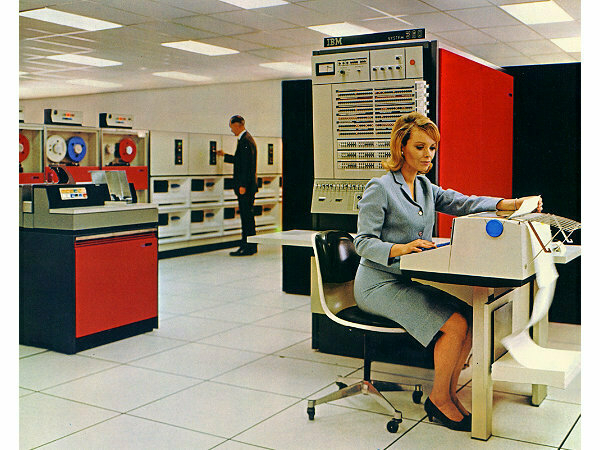anniversary
We Don't See Mainframes as Legacy Technology
Half-century milestone for IBM mainframes, by Mark Ward at BBC News, April 7th, 2014.

Most interesting about the passage below, is that they’re referring to mainframes right now, not 50 years ago.
"I don't think people realise how often during the day they interact with a mainframe," he said.
Mr Heptonstall said mainframes were behind many of the big information systems that keep the modern world humming and handled such things as airline reservations, cash machine withdrawals and credit card payments.
The machines were very good at doing small-scale transactions, such as adding or taking figures away from bank balances, over and over again, he said.
"We don't see mainframes as legacy technology," said Charlie Ewen, chief information officer at the Met Office, which has been using mainframes for 40 years.
(Revised and republished March 30th, 2025)
IBM System/360 - 50th anniversary
IBM recently celebrated the 50th anniversary of the System/360 mainframe, which was announced on April 7, 1964.
IBM press announcement text for the System/360, 1964 (Wayback Machine link)
IBM System/360 at the Computer History Museum
The System/360, or S/360 is discussed in this IBM video, “IBM Centennial Film: They Were There.”
youtu.be/XrhDaAmn5… (video no longer available)
Also from IBM, System 360: From Computers to Computer Systems (Wayback Machine link):
Most significantly, the S/360 ushered in an era of computer compatibility—for the first time, allowing machines across a product line to work with each other. In fact, it marked a turning point in the emerging field of information science and the understanding of complex systems. After the S/360, we no longer talked about automating particular tasks with “computers.” Now, we talked about managing complex processes through “computer systems.”
(Revised and republished April 1st, 2025)
Lincoln's shadow
Today is the 150th anniversary of the Gettysburg Address.
Lincoln casts quite a shadow in history. There was a grand speech before Lincoln's at Gettysburg in 1863 by Edward Everett, a well-known orator.
Speaking for 2 hours and over 13,000 words Everett's speech was complex, referencing Ancient Greece and using terms in Latin. Today Everett's speech is largely "invisible."
Lincoln spoke only for 2 minutes, and his 272 words are inscribed on the Lincoln Memorial.
